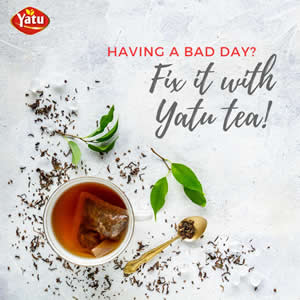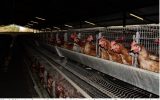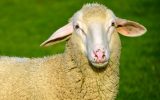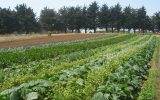Starting where you are, with what you have (Chicco`s Chicken).
Founded in 2017, Chicco’s Investment cc trading as Chicco’s Chicken is a layer management project based in the outskirts of Okahandja. Chicco`s investment supplies affordable, nutritional and good quality tabled eggs for Namibian households.
The company was founded by three young Namibians, Jeremiah Andreas, Tupohole Andreas and Toivo Thomas. The company seeks to play an integral role in the development of Namibia, especially in the agri-business sector. It wants to be a household name in the Namibian food industry.
Thomas is the head of operations at Chicco’s Chicken poultry farm that is outside of Okahandja. He is assisted by four fulltime staff members who helps out with day-to-day operations such as, ensuring birds have access to feed and water. According to Thomas, their ladies (chickens) need to eat 120 grams of feed per day to ensure they take in the appropriate nutrients to lay eggs and if they eat less than that, one will see a drop in egg production. There is a correlation between feed and egg production. Happy hens will lay at a rate of more than 80% if they are given adequate formulated feed and also fresh water per day. Good feed ensures that the chicken develop well, especially their bone structure. If the bone structure of the chicken is weak, it won`t be able to lay eggs until in the later stage, however if it happens to lay eggs they will not be good quality eggs.
“There is correlation between feed and egg production, less feed will translate in few production of eggs”
A typical day at the chicken house
‘A typical day starts at 600AM, in which chicken house is inspected; water, drinkers and chicken behaviour. It is very important to evaluate these three factors as they play an important role in making you understand the health of the birds,” Thomas says. He continues to state, “our birds have to eat on a daily basis, as per recommendation of the vet”.
A chicken operation is a hands-on business, that requires a farmer to take note of data. Data is very important as it guides the operation in understanding how the birds are performing but also gives us alerts if we should be worried about anything.
Data capturing is done a daily basis and includes; number of eggs collected in a day, mortality of birds and also vaccination schedules. In addition, we also have to maintain high hygiene levels and bio-security. Biosecurity entails, spraying cars that enter the farm, disinfecting hands and feet when entering buildings and cleaning the chicken house on weekly basis.
How long can one expect to keep the chickens?
Thomas continues ‘’in general, chickens are only kept for a year after they lay their first eggs. After a year, one will see a decrease in egg production and the bird will prepare for moulting stage. It is during this period that one has to look at replacing the flock as production will be so low that it won`t be commercially viable to run a production less than 70% of production.
The chicken house is a hotbed for disease to thrive, if wastes are not managed accordingly. At the farm, their operation produces about 32 000 Kg of manure a month and thus is very important to keep the chicken house tidy to reduce flies’ populations. The manure is used as fertilizer at the vegetable garden and is also for sale to the public.
Thomas states, ‘’chicken manure is very good for plants as it contains high levels of Nitrogen and good amounts of Phosphorus and Potassium. We are encouraging vegetable farmers to use organic waste such as our manure at their operations, as this not only reduces the chances of pollution but also allows us to return the nutrients back to mother nature.’’
The structure of the Chicken house
The team have chosen to establish an open ventilated structure system. By that it means, instead of using electricity to cool down the chicken house or employing fans to keep it cool, they have gone the natural way by keeping the sides of the house open so that air can flow through and keep the place ventilated. The net on the sides ensures that the breeze enter in the house and keep the chicken cool. If one chooses to close up the sides, then they would be forced to build controlled ventilated room which would require one to set up his/her own fans and air conditioners. Thomas emphasised that, when one builds their chicken house, one consideration to put in mind is the position of the sun and the ventilation of the air in and out of the compound. The sun rises on the east and sets in the west. The structure shouldn`t be in the opposite direction of the sunset because this would means too much sunlight in the chicken house and this can increase the chicken stress. The structure of the chicken house should be constructed vertically, in such a way that the short ends of the structures; one should be facing east, where the sun rises and the other short end facing west where the sun sets.
Importance of keeping chickens in cages
Upon our visitation, the chickens are safely secured in cages where they can easily access water and feed. Each cage consists of three (3) chickens. According to Thomas, the chickens in the cage should have enough spacing to avoid stress and the incidence of pocking on one another. The good part of keeping them in cages, it`s that they are easily manageable in terms of feed and giving them water. Furthermore, instead of wasting their energy roaming around, they now reserve that entire energy in egg production and the eggs can be easily collected upon arrival from the hen. However, for those that can`t afford cages, they can allow their chickens to roam freely in their compounds provided they give them enough feed and water.
Importance of Bio-security when working with chickens
The farm has major footbaths and sprayers at points of entry. Bio-security is very important as it helps mitigate possible risks caused by pathogens. One must remember chickens are susceptible to disease and a farmer should always be on their guard on reducing the chances of disease spread at the farm.
The day ends with egg collection, packing and storing of eggs, ready for delivery for their esteemed customers. Thomas insists, “our eggs are collected and packed in the same day; hence we use the mantra, Fresh from the Hen.”
Challenges in the sector
When questioned about project challenges, Thomas says, it’s challenging to setup poultry projects in Namibia, because of the high input costs associated with the operation.”
Thomas continues, ‘’Feed amounts to 70% of our operation costs and thus can be a stumbling block for potential growth. To overcome this, government can look at the concept of subsidizing local feed millers that supply the nation with feed.
Raw ingredients such as yellow maize, soy and amino acids have to be sourced from countries such as South Africa and Zambia. If government can sit-down with the stakeholders in the industry and subsidize these firms, we could possibly see a decrease in high costs and an increase in farming activity which leads to food security and employment opportunities.”
When asked by Namfarmers what advice he can give to aspiring farmers out there, Thomas states he lives by the mantra ‘simple living, high thinking’. It is not easy pioneering into a new industry such as that of the poultry. He further states, I started off with just 200 chickens, a tent, heating lamp in my flat and grew organically.
Now they are farming more than 6000 hens and still growing. In his own words, Thomas said: “It is not easy being a farmer, however, we, the team at the farm along with my business partners, understand that Rome was not built in one day and with the right attitude, drive and persistence we can grow organically and establish ourselves as a household name in the Namibian poultry industry”.
For those that would love fresh ready chicken eggs, straight from the hens and also chicken manure for fertilisers they can contact Chicco`s chicken at Tel: 062 500 757 Cell: +26481 822 3599/+26481 122 3838 Email: info@chiccoschicken.com
For the entire brief, well detailed broadcasted interview with Chicco`s chicken, be on the lookout it will be released soon.




















